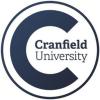Research Fellow In Computational Chemistry And Physics
London, ENG, GB, United Kingdom
Job Description
Ref Number
B04-06441
Professional Expertise
Research and Research Support
Department
UCL BEAMS (B04)
Location
London
Working Pattern
Full time
Salary
See advert text
Contract Type
Permanent
Working Type
On site
Available for Secondment
No
Closing Date
28-Aug-2025
About us
------------
The Chemistry Department at University College London is the oldest in England, with 100% of its outputs ranked as being world-leading (4) or internationally excellent (3) in the recent REF2021. We are located in Bloomsbury, at the heart of London, and offer an exciting and vibrant environment in which to study in one of the UK's top universities. The Department of Chemistry at UCL is committed to supporting excellence in both research and teaching. The department offers undergraduate BSc and MSci programmes in Chemistry and currently teaches ~650 undergraduates registered in Chemistry as well as students who select Chemistry on the Natural Sciences programme and first year Chemistry for life scientists.
The Chemistry Department has over 60 members of academic staff carrying out world-leading research. We specialise in the areas of organic synthesis, chemical biology, computational chemistry, nanotechnology, inorganic and materials chemistry, physical chemistry and chemical physics. The department has an annual research income of around 15 million, derived from many sources including the Research Councils (EPSRC, BBSRC, MRC, and NERC), European Commission and a wide range of charities and industrial partners in the UK, Europe and the USA.
Details about our research can be found on the departmental website http://www.ucl.ac.uk/chemistry.
About the role
------------------
We are seeking a talented computational scientist to work in the group of Prof. Scott Woodley. The post is associated with the Materials Chemistry HEC consortium (http://mcc.hec.ac.uk), which is led by Prof Scott Woodley. The MCC has played a vital role for three decades in ensuring that the UK materials modelling community exploits HEC resources effectively and efficiently to produce science of the highest quality and impact. The post at UCL will focus on the development, optimisation and applications of materials software and workflows, taking advantage of modern machine learning and AI techniques as well as High Performance Computing. You will be expected to be flexible to the needs of the MCC community. You will be expected to participate in MCC activities, help with management and collaborating with colleagues at EPCC and STFC as well as with MCC project partners on developing software that is beneficial to the MCC membership.
This appointment is for 6 months, in the first instance, and is funded by the EPSRC.
A & Person Specification for the post can be accessed at the bottom of this page.
To apply for the vacancy please click on the 'Apply Now' button below.
For informal enquiries, please contact Scott Woodley (
scott.woodley@ucl.ac.uk
). Any queries on accessing the UCL online application link can be directed to HR officers, email:hr.chem@ucl.ac.uk
.About you
-------------
The successful candidate will have a PhD degree or equivalent - or will have submitted their thesis prior to taking up the position - in Physics, Chemistry, Materials Science, Computer Sciences, or a related discipline, with a strong research record in theoretical, computational or mathematical physics, chemistry, materials science, computer sciences or applied mathematics, and an expertise of modelling either solid-state or molecular systems. Good experience in scientific coding will be essential for the role, and you should have a track record both in computational and experimental research (ideally in catalysis and energy materials), moreover, it is desirable for the candidate to have experience with working with industry.
What we offer
-----------------
The post is a UCL grade 7 post, the salary for which ranges from 45,103 - 52,586 per annum (including London Allowance of 5,197 p.a.). Starting salary is usually 45,103 p.a.
Please note, appointment at Grade 7 is dependent upon having been awarded a PhD; if this is not the case, initial appointment will be at Research Assistant Grade 6B (salary 39,148 - 41,853 per annum, including London Allowance of 5,197) with payment at Grade 7 being backdated to the date of final submission of the PhD thesis.
As well as the exciting opportunities this role presents, we also offer some great benefits some of which are below:
41 Days holiday (27 days annual leave 8 bank holiday and closure days) Additional 5 days' annual leave purchase scheme defined benefit career average revalued earnings pension scheme (CARE) Cycle to work scheme and season ticket loan Immigration Loan Relocation scheme for certain posts On-Site nursery On-Site gym Enhanced maternity, paternity and adoption pay Employee assistance programme: Staff Support Service Discounted medical insurance
Visit UCL rewards and benefits to find out more. Reward and Benefits | Work at UCL - UCL - University College London
Our commitment to Equality, Diversity and Inclusion
-------------------------------------------------------
As London's Global University, we know diversity fosters creativity and innovation, and we want our community to represent the diversity of the world's talent. We are committed to equality of opportunity, to being fair and inclusive, and to being a place where we all belong. We therefore particularly encourage applications from candidates who are likely to be underrepresented in UCL's workforce. These include people from Black, Asian and ethnic minority backgrounds; disabled people; LGBTQI+ people; and for our Grade 9 and 10 roles, women.
The Department has been awarded a Silver Athena Swan Award and we support the Athena beliefs that:
The advancement of science, engineering and technology (SET) is fundamental to quality of life across the globe. It is vitally important that women are adequately represented in what has traditionally been, and is still, a male-dominated area. Science cannot reach its full potential unless it can benefit from the talents of the whole population, and until women and men can benefit equally from the opportunities it affords.
Further information on Athena Swan is at http://www.athenaswan.org.uk/
Beware of fraud agents! do not pay money to get a job
MNCJobs.co.uk will not be responsible for any payment made to a third-party. All Terms of Use are applicable.
Job Detail
-
Job IdJD3557109
-
IndustryNot mentioned
-
Total Positions1
-
Job Type:Full Time
-
Salary:Not mentioned
-
Employment StatusFull Time
-
Job LocationLondon, ENG, GB, United Kingdom
-
EducationNot mentioned



